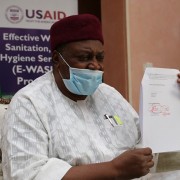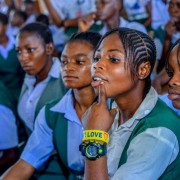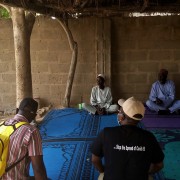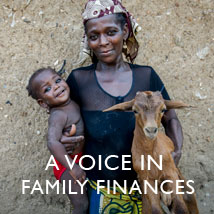Speeches Shim

On June 2, 2020, the U.S. Agency for International Development (USAID) announced notification of an additional $234.5 million in development assistance to continue support for the goals outlined in the 2015 bilateral Development Objectives Assistance Agreement (DOAG) between the U.S. and Nigerian governments. Most of the new funding, more than $160 million, will finance new and existing activities to improve public health in Nigeria. Another $34 million will help improve agriculture and water systems, while $21 million will enhance education, and $19.5 million will be dedicated to strengthen good governance.

The U.S. Agency for International Development (USAID) joined with Taraba State Executive Governor H.E. Dairus Dickson Ishaku to formalize a new partnership to improve the management and delivery of water and sanitation (WASH) services to help people live healthier lives through reliable access to clean water. A Memorandum of Understanding signed online on May 21, 2020, outlines commitments between USAID and Taraba State to jointly develop a professionally managed, commercially oriented, and accountable state Water Board. This will be accomplished by improving the Water Board’s financial viability, and strengthening policy, institutional, and regulatory frameworks for better WASH service delivery.

The U.S. Agency for International Development (USAID) has designed a new activity aimed at improving the health and well-being of poor, urban adolescents using a new, inclusive “co-creation” method to better understand the challenges young people face in leading healthy and productive lives. The result was the five-year, $15 million award of the Youth-powered Ecosystem to Advance Urban Adolescent Health and Well-being activity to DAI Global, which will lead a group of specialized local partners to establish and strengthen a network of “youth hubs” in the state capitals of Lagos and Kano.

The 14th Annual Report of the U.S. President’s Malaria Initiative (PMI), which will be released today in conjunction with World Malaria Day, indicates that child death rates have decreased in Nigeria by 16 percent since 2010 when the United States began providing malaria control support to the country. During the same period, malaria prevalence has decreased by almost half – from 42 percent in 2010 to 23 percent – according to Nigeria’s most recent National Demographic and Health Survey.

In Yobe and Borno states, two of the most severely impacted by the decade -long conflict with violent extremists Boko Haram and ISIS-West Africa, USAID conducted sensitization training for 100 voluntary community mobilizers in each state as they prepare for a five-day, door-to-door awareness campaign to curb the spread of the virus.



Comment
Make a general inquiry or suggest an improvement.